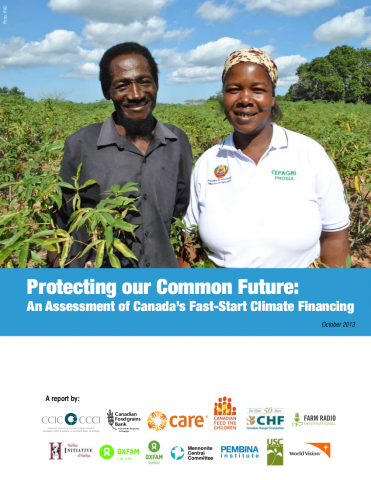
This year, a coalition of development and environment organizations commissioned an independent assessment of Canada’s Fast-Start Climate Finance program. Members of the coalition, including the Halifax Initiative, wanted to assess how Canada’s international “fast start” financial commitments were allocated. The assessment raises serious concerns about Canada’s willingness to support developing countries cope with the impacts of climate change.
Introduction
Between 2010 and 2012, Canada contributed almost $1.2 billion towards supporting developing countries to address the impacts of climate change. This was part of Canada’s commitment under the Copenhagen Accord (see box next page) and represented a substantial increase from previous years of Canada’s climate-related financing.
Under the Copenhagen Accord, developed countries also pledged to mobilize US$100 billion a year by 2020 to address the needs of developing countries. In order to make constructive recommendations for how Canada can effectively contribute to longer term financing goals, it is important to review the successes and challenges of Canada’s track record from the 2010-2012 fast-start finance period.
To this end, a coalition of Canadian international development and environmental organizations commissioned an independent assess- ment of Canada’s fast-start financing. The key questions addressed are summarized below, followed by recommendations for next steps.